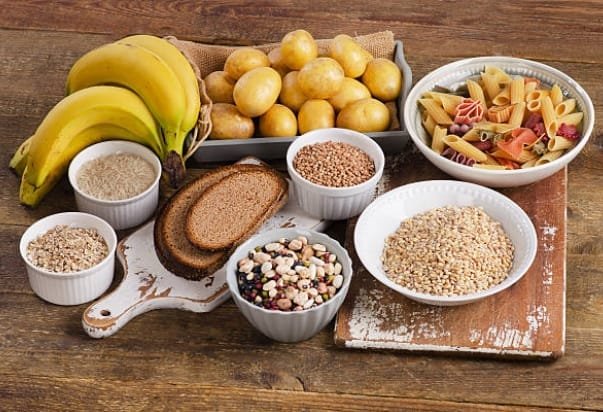Muscle building Nutrition | Part 1 – Let’s Talk Calories
There are 2 important aspects to focus on when the task at hand is to build as much quality muscle as possible. The first aspect is training and the second aspect is nutrition, the latter of which is closely linked to nutrition. Quite simply, if you don’t focus on giving your body all the nutrients it needs to recover from the vigorous, muscle-building workouts, you will gain less muscle.
In this series of articles, we’ll tell you more about the important nutritional considerations to take into account when trying to build muscle. For this first part of the series, we’ll talk about one of the biggest factors in muscle-building nutrition – Calories.
What Are Calories
By definition, a “calorie” is a measurement unit, used to measure the amount of energy in the foods that we consume. Each food product has a certain caloric value, which is determined by the ratio of the 3 main macronutrients. Those 3 macronutrients are protein, fats carbs, which have 4, 9, and 4 calories per gram, respectively.
Your caloric intake is important because there is a number of calories that your body requires daily, to sustain healthy functioning of all systems, as well as maintain body weight.
Calories in VS Calories out
The number of calories that your body needs to maintain its weight and healthy functioning is referred to as your “Total daily energy expenditure (TDEE)”.
Your TDEE depends on a number of factors:
- Gender
- Age
- Height
- Weight
- Non-exercise activity
- Exercise activity
- Food consumption
The reason why this is important is that if you consume FEWER calories than your TDEE, you will LOSE weight. This is called “eating in a caloric deficit” and the loss in weight happens because the body does not get enough energy from food (hence, deficit). Oppositely, if you consume MORE calories than your TDEE, you will gain weight (this is called “eating in a caloric surplus”)
Now think about it – If you want to BUILD muscle, you can’t make something, out of nothing, right? Even physics can tell you that you cannot create energy, you can just transform it. And guess what, the muscle you’re trying to build actually has quite a solid energy content! In a sense, the extra energy you give the body from food will go towards building that extra muscle on your frame.
This is the exact reason why sports science points out that building muscle is OPTIMIZED when you consume food in a caloric surplus. This begs the question, though…
Can You Build Muscle In a Deficit?
Is it really that binary? If you eat in a deficit, you will lose fat and if you eat in a surplus, you will gain weight, and there is no in-between. Well, as a matter of fact, it is not really that simple – You can be out of a caloric surplus and still gain muscle. HOWEVER, those gains will simply be SUBOPTIMAL and in this case, we’re looking for something OPTIMAL.
Gaining muscle in a caloric deficit is possible for a couple of groups of people:
- People who have a lot of excess fat
- Beginner trainees
- People who come back to training after a layoff
And so, if you are someone who is just starting out in the gym and has a lot of fat to lose, don’t worry – You can tone up the muscles during your fat loss diet! Nevertheless, advanced trainees should focus on their long, bulking period when food is being consumed in a surplus.
Again, that surplus shouldn’t be too big, as it may lead to excess fat gains. The recommended daily caloric surplus is about 250-300 calories. In doing this and training progressively, you will be able to create the right muscle growth stimulus, while providing the body all it needs to recover and grow stronger.
Conclusion
If you are trying to build muscle but are ignoring your nutrition, you are doing something wrong! Nutrition is one of the most important aspects of your recovery plan, as it technically provides all the important nutrients and energy value, needed to grow your muscles. One of the essential principles of muscle-building nutrition is to eat in a caloric surplus.
In doing so, your muscle growth will be optimized, thus yielding the best results possible. For the next part of this series, we will go over the two essential nutrients that make up a big portion of your caloric intake, namely protein, and fats.
See you in part 2!












